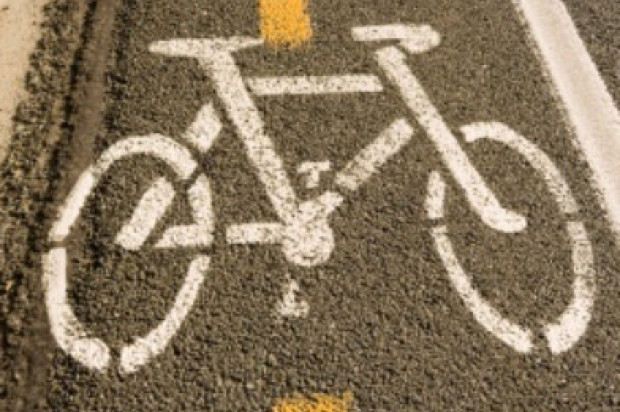
The Bay Area Bike Share program is poised for expansion to the East Bay sometime in 2015 with the approval of $8.7 million in funding by the Metropolitan Transportation Commission’s Programming and Allocations Commission this morning, an MTC spokesman said today.
The funding for the continuation and expansion of the program was approved unanimously at the committee’s meeting today and will go to a vote by the full MTC board on April 23, MTC spokesman John Goodwin said.
About 750 bikes would be added to as-yet undetermined locations in Oakland, Berkeley and Emeryville. About 400 bikes would be stationed in Oakland and 350 in Berkeley, but some portion would also go to Emeryville, Goodwin said.
While the specific locations for the bikes remain unclear and will be decided in the coming months, likely locations would be office complexes, BART stations, college campuses including the University of California at Berkeley and the Amtrak station in Emeryville, Goodwin said.
The placement of the new bike share locations will be decided through coordination between city government, transit authorities, colleges and others to work out not only the best locations for the bikes but where the stations could be least obtrusively installed.
The bike share program allows members to pick up bikes at a station and ride them to another station at their destination. Membership in the program costs $88 per year, $22 for a three-day membership or $9 for a 24-hour membership. Trips of 30 minutes or less are free for members, 30-60 minute trips cost $4, and each additional 30 minutes costs $7.
The program primarily is intended as a first- and last-mile transit option for public transit riders, with docking stations at train and ferry terminals and at locations 1-2 miles from public transit, enabling riders to bike to their destination without carrying a bicycle.
To date, $11.38 million has been spent on the bike share program, including $7.2 million from the MTC, $2.8 million from the Bay Area Air Quality Management District, and contributions from the San Francisco Municipal Transportation Agency, SamTrans and the Valley Transportation Authority.
So far 69 bike share stations have been installed in San Francisco, San Jose, Mountain View, Palo Alto and Redwood City.
The program has proven most popular in San Francisco, where there are 35 stations and 90 percent of the region’s 171,039 total bike share trips have taken place, according to a report for today’s MTC committee meeting.
Based on existing systems already established in cities like Boston, New York and Minneapolis, the benchmark for a successful and established bike share system is four rides per bike per day. So far San Francisco is seeing usage of just over two rides per bike per day, while other cities are lagging behind with less than one ride per bike per day.
The MTC anticipates that the program’s popularity will grow as more infrastructure is added and the agency conducts more outreach.
In the lagging areas, the MTC intends to conduct a more thorough analysis to see if the conditions are met for a successful implementation. Bike share systems work best when stations are about a half-mile apart, according to the report, so that people can comfortably get from one destination to another under the half-hour time limit.
Redwood City, which has averaged only 0.09 trips per bike per day, is looking into how to redeploy its system for greater success.
But the East Bay, with its plentiful access to public transit, dense population, and presence of major colleges and universities, has the greatest potential for the expansion of the bike share pilot program, according to MTC analysis.
East Bay residents are already interested. Despite the lack of a bike share program in East Bay cities, Oakland and Berkeley have the third-highest number of annual bike share members in the region, according to the MTC.
Berkeley Mayor Tom Bates welcomed the news in a statement today.
“Making it easier for our residents to use bicycles is essential if we want to increase alternative transportation,” he said. “And alternative transportation is a vital part of Berkeley’s efforts to cut greenhouse gases.”
Scott Morris, Bay City News









